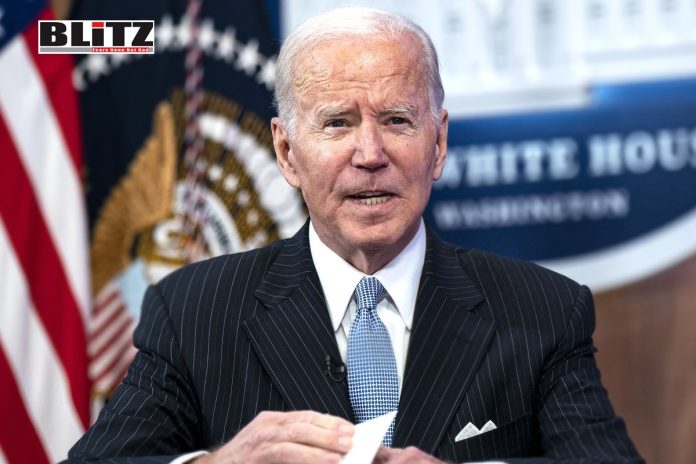As the 2024 presidential election draws nearer, an air of uncertainty pervades the political landscape, particularly among voters who doubt the sustainability of President Joe Biden’s candidacy until November 5. Despite official confirmation of Biden’s reelection bid, skepticism persists, fueled by a myriad of speculations and disinformation circulating within the public sphere.
One such skeptic is Debbie Pridmore, a North Carolina voter who expressed her suspicions regarding Biden’s candidacy to NPR after casting a ballot for former President Donald Trump in the Republican primary. Pridmore’s sentiments reflect a broader sentiment among voters who harbor doubts about the likelihood of a Biden-Trump rematch. These doubts, while unsubstantiated, underscore a pervasive undercurrent of disbelief regarding the unfolding political narrative.
Debbie told media, “I really don’t see Biden running. I see them finding some way to get him out and get someone else in”.
She further said, “I don’t know who they would get in. I’ve got my thoughts, but I don’t want to share those. “I don’t think Biden’s going to be able to run”.
The Democratic National Committee’s concerted efforts to support Biden’s campaign notwithstanding, doubts persist, particularly among Republican voters like Ed Boyle from Raleigh, N.C. Boyle’s skepticism hints at a broader sentiment within the GOP base, where speculation about potential changes within the Democratic ticket looms large.
Democratic Party Chairman Ben Wikler acknowledges these doubts, citing pervasive discussions surrounding a “big surprise” or the possibility of replacing Biden or Vice President Kamala Harris with a new candidate. The proliferation of such speculations on social media platforms and within focus groups reflects a broader societal trend characterized by distrust and uncertainty.
Melissa Ryan, a disinformation expert, attributes the surge in doubts to the dissemination of conspiracy theories via media and social media channels. Right-wing influencers, in particular, capitalize on narratives questioning Biden’s fitness for office, amplifying disinformation to bolster audience engagement. Ryan’s assessment underscores the pervasive erosion of trust in political institutions and mainstream media.
Sarah Longwell, who conducts focus groups for Republican Voters Against Trump, identifies varying motivations behind voter skepticism. While some individuals buy into false narratives about Biden’s health or potential replacements, others grapple with the harsh reality of a Biden-Trump rematch, expressing a desire for an alternative candidate.
Despite these doubts, Biden campaign officials and allies remain confident that once voters accept the reality of Biden’s candidacy, support will coalesce around the stakes of the upcoming election. However, anecdotes from focus groups, such as Mike from Michigan’s speculation about potential replacements for Biden, highlight the lingering uncertainty surrounding the 2024 election.
As the political landscape continues to evolve, the prevalence of doubt and skepticism surrounding Biden’s candidacy underscores broader societal challenges relating to trust in political institutions and media. While the ultimate outcome of the 2024 election remains uncertain, the persistence of such doubts underscores the need for concerted efforts to combat disinformation and restore faith in democratic processes.




